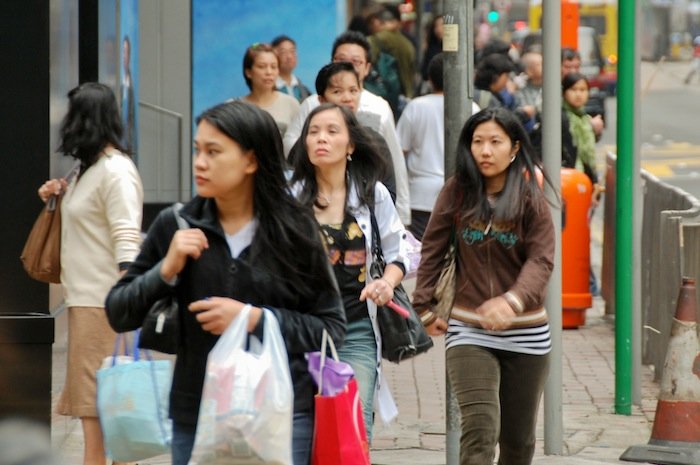Middle Eastern intolerance means Filipinos have to be careful about their faith
 An estimated 12 million Filipinos are working abroad in over 200 countries
An estimated 12 million Filipinos are working abroad in over 200 countries
Celeste Macaldo says she’s a “devout” Catholic who attended Mass every week until she landed a job as a caregiver in Lebanon five years ago.
“For five years, I remember going to church to attend Mass only five times, and only on Christmas Eve,” she told ucanews.com.
Many times Muslim friends tried to persuade her to embrace Islam, but she simply asked them to respect her beliefs.
One day, she asked a Catholic priest if she had committed a sin for not attending Mass. “Jesus will understand your situation,” the priest told her.
Ronald Telen, who works in Kuwait, says he is “lucky” because he can practice his faith in public.
“[Kuwaitis] are more tolerant than other Middle Eastern countries when it comes to other religions,” he says, adding that there are three Catholic churches in Kuwait City.
Other Filipino workers in the Middle East are, however, are not as lucky. They have to pray in secret in their homes or workplaces.
John Leonard Monterona, from the Migrante group in Saudi Arabia, agrees that it is a challenge for Filipinos, most of whom are Catholic, to practice their faith in Muslim countries.
Official government figures say some 12 million Filipinos work abroad, 1.4 million of them in Saudi Arabia.
“We have to adjust a lot,” Monterona says, adding that many Filipinos admit they experience a lot of “internal struggle” for failing to practice their religion openly.
He admits that clandestine Masses take place in many parts of Saudi Arabia, but “it’s very risky.”
Christians found attending services outside of embassies or consulates face arrest and severe punishment.
“Distance, the culture of another country, and even religion, cannot however change the Filipino way of life,” Monterona says, adding that many Filipino Catholics still manage to be faithful “in thoughts and in deeds, and in silence.”
Some keep their faith strong through the internet. “Live streaming of Sunday Masses on the web helps a lot,” Monterona says.
Monsignor Ben Sabillo of Leyte says online Masses are “better than none at all” although it is not complete because one cannot receive the Eucharist.
Others find comfort in reading online prayers or homilies. “Just like other Filipino workers here, I never let Sunday pass without reading the reflections written by Fr Jerry Orbos,” Monterona says. “After reading Fr Orbos, you feel enlightened.”
- Vatican, Civil Authorities Join Forces to Oppose Human Trafficking
- Pope Francis meets Asian youth delegates in birthplace of Korean Catholicism
- CAFOD: Fifty years with the world's poorest
- 'God, I am not a criminal. I cry out every day.'
- Prudence, not prurience
- New Year's resolutions?
- Be bearers of the message of Christian unity
- Taizé in Rome
- Bishop hopes to create new home for Catholics in Arabia
- The Catholic Church on the Web: Aleteia and Google forge “holy Web alliance”


 Votes : 0
Votes : 0









